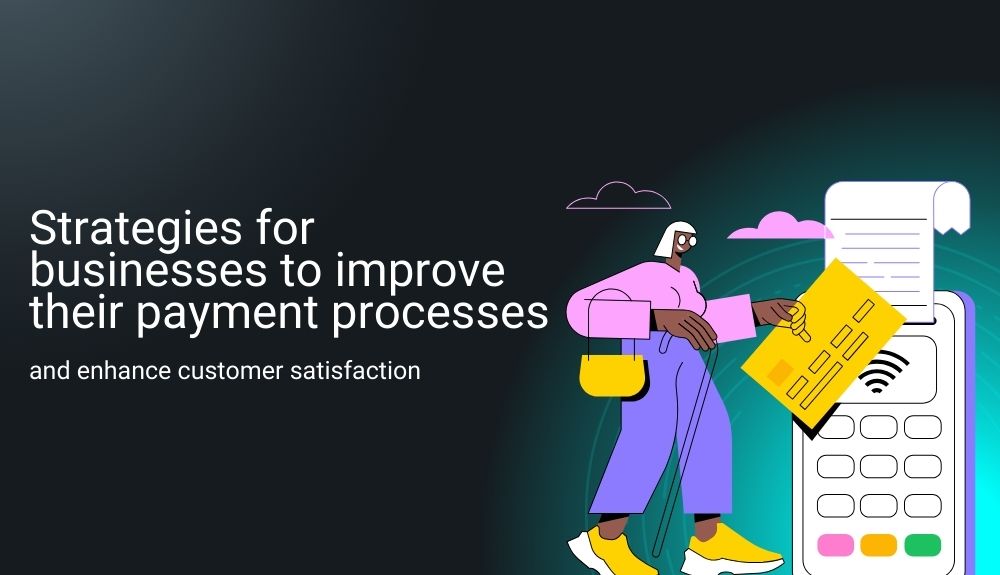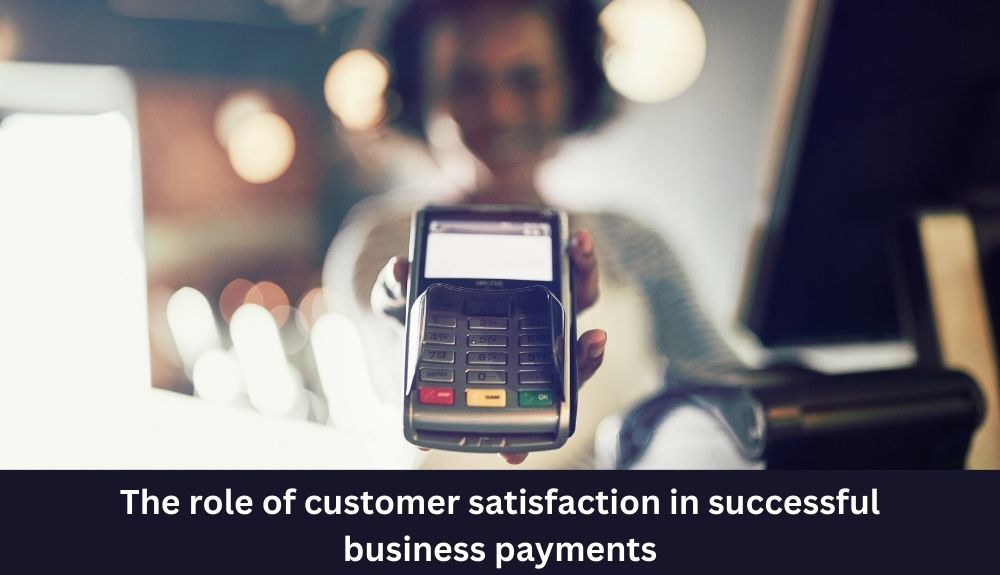
By max April 3, 2024
Are you a business owner looking to level up your payment game? Picture this: smooth transactions, happy customers, and increased revenue. Sounds like a dream? Well, it doesn’t have to be! Efficient payment processes are the backbone of any successful business operation. In this blog post, we’ll dive into strategies that can help businesses like yours streamline their payment processes and enhance customer satisfaction. Let’s turn those payment woes into wins!
Review of common payment methods used by businesses
Businesses today have a variety of payment methods at their disposal to cater to the diverse needs of customers. Traditional methods like cash and checks are still used, especially in certain industries or local businesses where digital options may not be prevalent. Credit cards are a popular choice due to their convenience and widespread acceptance by most businesses.
Additionally, mobile wallets such as Apple Pay and Google Pay have gained popularity for their ease of use through smartphones. Online payment gateways like PayPal and Stripe also offer secure transactions for e-commerce businesses. Furthermore, bank transfers provide a direct way to transfer funds between accounts without the need for physical cash.
Moreover, subscription-based services often utilize recurring billing systems to automatically charge customers on a regular basis. Virtual currencies like Bitcoin have also emerged as an alternative payment method for tech-savvy consumers seeking decentralized transactions. Businesses must adapt to these various payment methods to meet the evolving demands of modern consumers seamlessly.
Challenges faced by businesses in their payment processes

Managing payment processes can often present challenges for businesses, affecting their overall efficiency and customer satisfaction. One common hurdle faced by companies is the complexity of handling multiple payment methods. Juggling between cash, credit cards, checks, and online payments can lead to confusion and errors if not properly organized.
Moreover, dealing with delayed or failed transactions can disrupt cash flow and impact business operations. Finding a balance between ensuring timely payments from customers while managing outstanding invoices requires careful attention to detail.
Security concerns also pose significant challenges in payment processing. With the rise of cyber threats and data breaches, safeguarding sensitive financial information has become paramount for businesses. Implementing robust security measures is essential to protect both the company and its customers from potential risks.
Additionally, reconciling payments across various platforms or systems can be a time-consuming task that may result in discrepancies if not managed effectively. Ensuring accurate record-keeping and seamless integration between different payment channels is crucial for maintaining transparency in financial transactions.
Strategies for streamlining payment processes and addressing challenges
Strategies for streamlining payment processes and addressing challenges are crucial for businesses looking to enhance efficiency and customer satisfaction. Implementing digital payment options can significantly speed up transactions, reduce errors, and provide customers with convenient ways to pay. By utilizing automated systems, businesses can streamline their processes further by automating invoicing, reminders, and reconciliation.
Offering flexible payment plans is another effective strategy that can help accommodate customers’ varying financial situations while still ensuring timely payments. Ensuring secure transactions is paramount in building trust with customers and protecting sensitive financial information. By implementing robust security measures such as encryption and authentication protocols, businesses can safeguard both their data and their customers’.
Addressing challenges in the payment process is not only about efficiency but also about creating a seamless experience that leaves a positive impression on customers.
A. Implementing digital payment options
In today’s fast-paced digital age, businesses are increasingly turning to implementing digital payment options to streamline their processes and meet the evolving needs of customers. By offering online payment solutions, companies can cater to a broader audience and enhance convenience.
Digital payments encompass various methods such as mobile wallets, credit/debit cards, and online transfers. These options not only simplify transactions but also reduce the reliance on traditional cash-based payments.
Moreover, integrating digital payment systems into business operations can boost efficiency by automating tasks like invoicing and reconciliation. This automation minimizes errors and saves time for both businesses and customers.
Embracing digital payment solutions is not just about keeping up with technology trends; it’s about providing a seamless experience that aligns with modern consumer preferences. Businesses that adapt to these changes stand to improve operational efficiency while delighting their customers with convenient transaction processes.
B. Utilizing automated systems
Businesses can optimize their payment processes by embracing automated systems. These innovative tools streamline transactions, reducing the risk of errors and delays. Automated systems enable companies to send invoices promptly and receive payments efficiently.
By automating repetitive tasks like invoice generation and payment reminders, businesses can save time and resources. This not only enhances operational efficiency but also improves cash flow management. Additionally, automated systems provide real-time insights into financial data, enabling better decision-making.
Furthermore, automation enhances security measures by minimizing human intervention in sensitive payment operations. With features like encrypted data transmission and authentication protocols, businesses can ensure secure transactions for both themselves and their customers.
Incorporating automated systems into payment processes is a strategic move that can boost productivity while enhancing the overall customer experience.
C. Offering flexible payment plans
Businesses can enhance customer satisfaction by offering flexible payment plans that cater to varying financial needs and preferences. By providing options like installment payments or deferred billing, companies can make their products or services more accessible to a wider range of customers.
Flexibility in payment terms not only attracts new clients but also fosters loyalty among existing ones. Customers appreciate the ability to customize their payment schedules based on their cash flow and budget constraints, leading to increased trust and long-term relationships with the business.
Moreover, offering flexible payment plans can help businesses differentiate themselves from competitors in a crowded market. It shows a commitment to putting the customer’s needs first and demonstrates an understanding of diverse financial circumstances.
Incorporating flexibility into payment processes is a strategic move that aligns with modern consumer expectations for personalized experiences and convenience. Businesses that adapt to these changing preferences are likely to see improvements in customer retention rates and overall profitability.
D. Ensuring secure transactions
In today’s digital age, ensuring secure transactions is paramount for businesses looking to build trust with their customers. With cyber threats on the rise, safeguarding sensitive payment information has become a top priority.
Implementing encryption technologies can help protect data during transmission and storage. By using secure sockets layer (SSL) certificates and tokenization methods, businesses can enhance the security of online transactions.
Regularly updating security protocols and monitoring systems for any suspicious activities are crucial steps in preventing potential breaches. Conducting regular security audits can also identify vulnerabilities that need to be addressed promptly.
Educating both employees and customers about best practices for protecting personal information can further strengthen a business’s overall security posture. Being transparent about security measures in place can instill confidence in consumers when making payments online.
By prioritizing secure transactions, businesses not only protect themselves from financial risks but also demonstrate their commitment to keeping customer data safe.
The role of customer satisfaction in successful business payments

Ensuring customer satisfaction is paramount for businesses looking to maintain a loyal customer base and drive repeat business. By offering seamless payment processes that are convenient, secure, and tailored to individual needs, businesses can enhance the overall customer experience. Happy customers are more likely to recommend your services to others, leading to increased brand reputation and growth opportunities. Remember, in today’s competitive marketplace, prioritizing customer satisfaction through efficient payment processes can set your business apart from the rest. So, make sure to implement these strategies and watch your business thrive!
